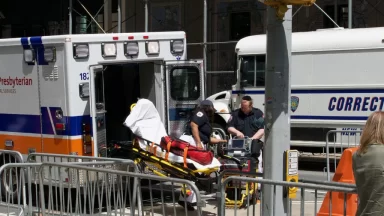As Asheville residents struggle to recover from Hurricane Helene’s destruction, a visit from Donald Trump brought frustration instead of relief. His motorcade, part of a political rally, worsened the gridlock in a city still grappling with water shortages and power outages. Many locals, already stretched thin by the hurricane’s aftermath, found their daily recovery efforts delayed by blocked roads, which impeded access to necessities like medication and water. Criticism mounted, with residents and officials accusing Trump of prioritizing photo ops over genuine relief efforts.
In the days leading up to Trump’s visit, Asheville was still reeling from the heavy rains that had caused significant flooding. Homes were washed out, and weeks after the storm, the region was left with lingering infrastructure issues. Many residents had no running water and faced a boiled water mandate, while thousands remained without electricity. The hurricane, although hitting Florida hardest, had devastating effects on the North Carolina mountain city. For weeks, locals used buckets to gather rainwater, carefully rationing it for different purposes.
Trump’s visit to Swannanoa, about 10 miles from downtown Asheville, coincided with his campaign tour through North Carolina. He held a press conference in a neighborhood ravaged by the storm, but his appearance only exacerbated local frustrations. “It took me three hours to run basic errands,” one resident shared on Reddit, expressing their outrage at the disruption. Another mentioned how their wife, stuck in traffic, couldn’t access medication due to the road closures.
State Representative Caleb Rudow weighed in, criticizing Trump for hosting a rally in a disaster zone and slowing down recovery efforts. The former president’s remarks about FEMA further fueled the backlash, especially after he appeared to defend public frustration with the agency’s response. “We’re entitled to complain if FEMA’s doing a bad job,” Trump remarked during the event. Emergency management officials in the region countered that FEMA had been efficient, handling claims and helping those in need within days of the disaster.
Amid this backdrop, rumors and conspiracy theories about FEMA’s role in disaster relief gained traction, contributing to threats against the agency. A recent arrest involving a man accused of threatening FEMA workers in North Carolina heightened tensions. Local officials urged the public to focus on recovery efforts rather than divisive rhetoric, emphasizing the importance of collaboration as the region continues to rebuild after Hurricane Helene’s devastation.



Recent Comments